Are Stone Floors Right for Your Home?
http://decor-ideas.org 10/16/2014 06:13 Decor Ideas
Stone floors are beautiful, sturdy and extremely long lasting — and they can work in just about any room in the house. In fact, they are one of the only flooring materials (aside from perhaps concrete) that can be used both indoors and out with ease. If you are considering making an investment in stone floors for your home, these pros and cons can help guide your decision-making process.
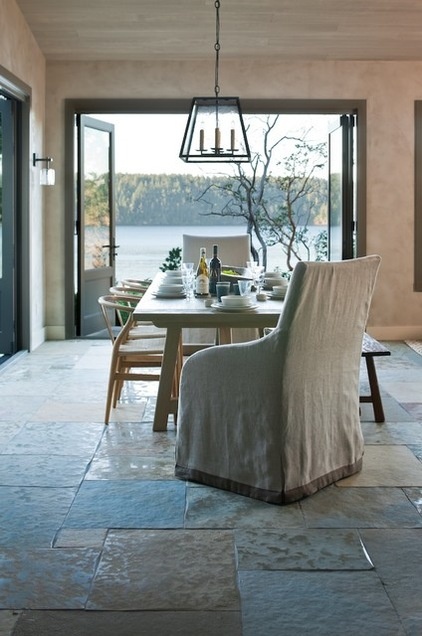
Pros of Stone Flooring
Stone lasts forever. There is a reason the most ancient structures built by humans that are still standing are made of stone — it’s an incredibly strong, hardy material. If you are designing a home you hope to live in for many years to come, stone floors are a solid choice. Compared to wood floors, which will eventually require refinishing, and engineered wood floors, which may need to be replaced after a time, stone floors require very little maintenance.
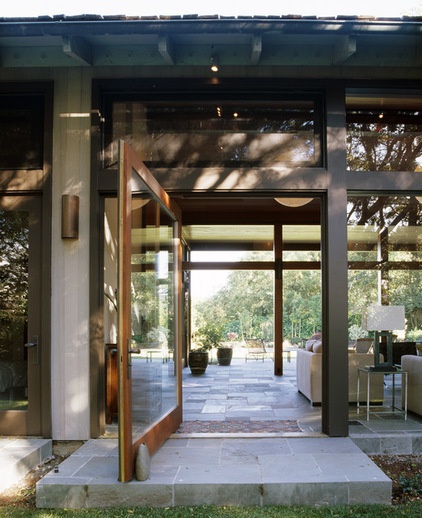
Stone used indoors and out creates a seamless flow. If you crave indoor-outdoor flow, using the same stone inside the house as outdoors is a great way to connect the two spaces. Especially when the stone is paired with large windows and sliding glass doors — or even a pivoting wall, as shown here — the effect is stunning.
Flooring: cleft green slate
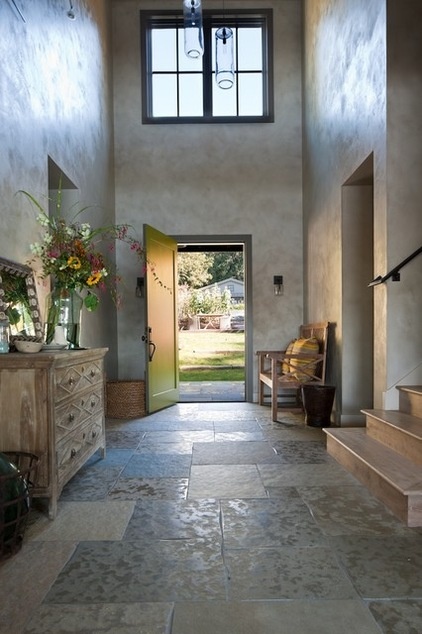
Stone is naturally cool in warm weather. If your climate is warm or temperate, you will appreciate stone’s natural ability to stay cool to the touch, even when outdoor temperatures climb. Padding barefoot across a bare stone threshold in summer is an utterly satisfying feeling.

Stone floors work well with radiant heat. If winters are cold where you live, radiant heat beneath stone floors is a luxurious, energy-efficient way to heat your home. Stone conducts heat well, making it a top choice for radiant heat systems.
Flooring: cleft green slate
How to Add a Radiant Heat System
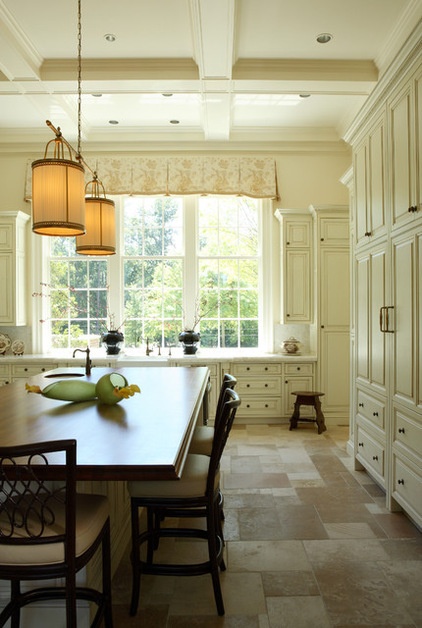
Stone floors help keep allergens at bay. If you or a family member suffers from allergies, stone floors may help in your efforts to keep dust and allergens out of the house. The hard, nonporous surface does not give allergens anywhere to hide, making cleaning more effective. Even “porous” stone, like marble, is not very porous compared to materials like wood, cork or carpeting.
Flooring: antique limestone in Dijon
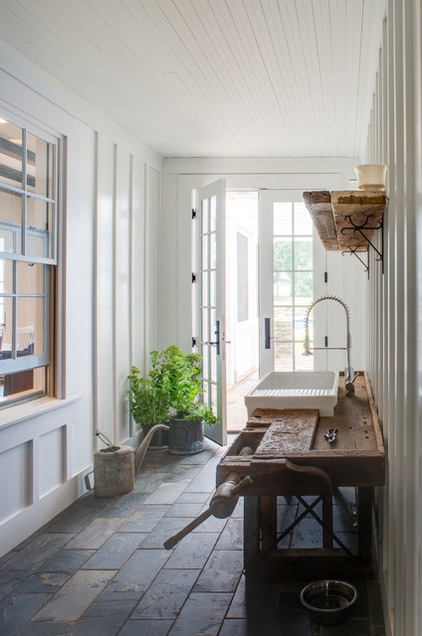
Cons of Stone Flooring
Stone is expensive. There is no getting around it — stone is pricey. Choosing stone that is quarried locally is one way to cut down on costs, as shipping significantly boosts the price, but even a locally quarried stone floor costs far more than other options, like wood.
Flooring: cleft slate
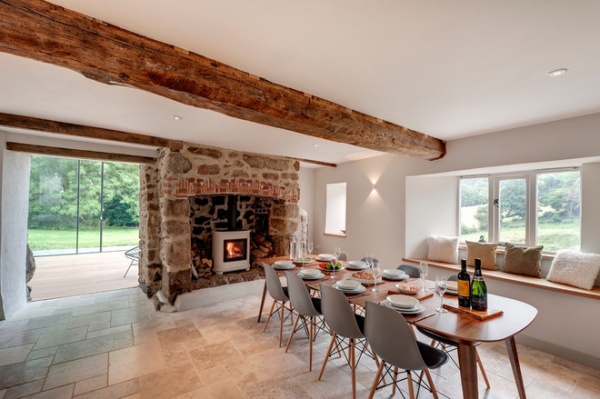
Stone floors can be cold. If your climate is colder and you do not have radiant heat installed beneath those stone floors, they may feel quite chilly in winter. You can, of course, warm them up with rugs, but any exposed areas of floor will feel cold on bare feet.
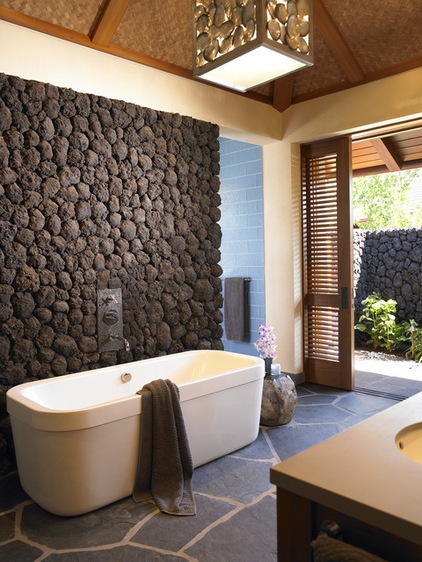
Wet stone can be slippery. The finish and sealant can help make stone less slippery — ask your stone dealer for advice on the best methods for your application. But even with a honed finish, which is less slippery, stone can become quite slick when it gets wet. If you use stone floors in the bath or other areas where water may splash onto the floor, be sure to use nonskid mats.
Flooring: slate
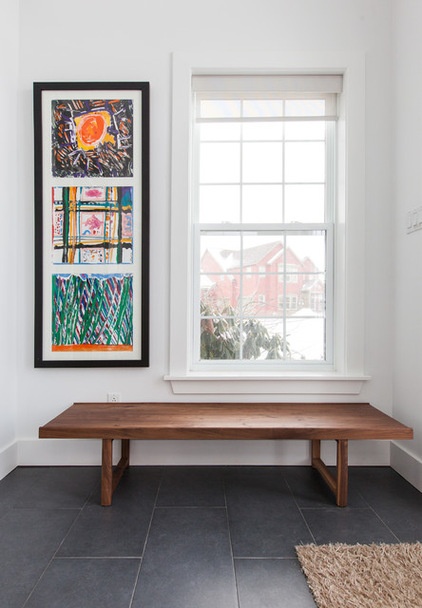
Stone’s strength can make falls more dangerous. Active kids and older people with more fragile bones are both at risk for potentially damaging falls on stone floors. China and glassware are also more likely to break when dropped on a stone floor.
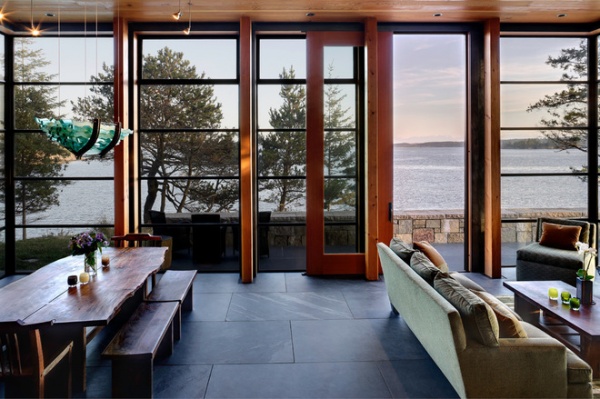
Stone is really heavy. Stone flooring requires skilled installation, along with a substrate that can handle the additional weight. It is crucial to check with a pro before purchasing stone flooring to make sure you will be able to install it where you want.
Flooring: Montauk Black Brazilian slate
Tell us: Are stone floors for you?
More:
How to Find the Right Stone Tile
9 Hard Questions to Ask When Shopping for Stone
Related Articles Recommended












